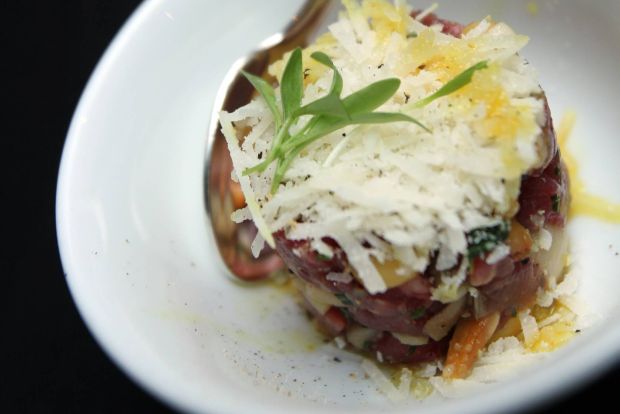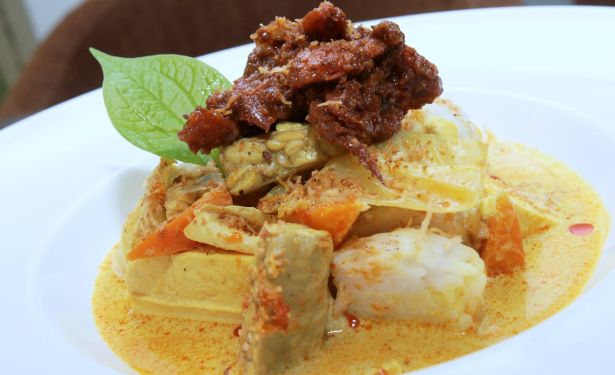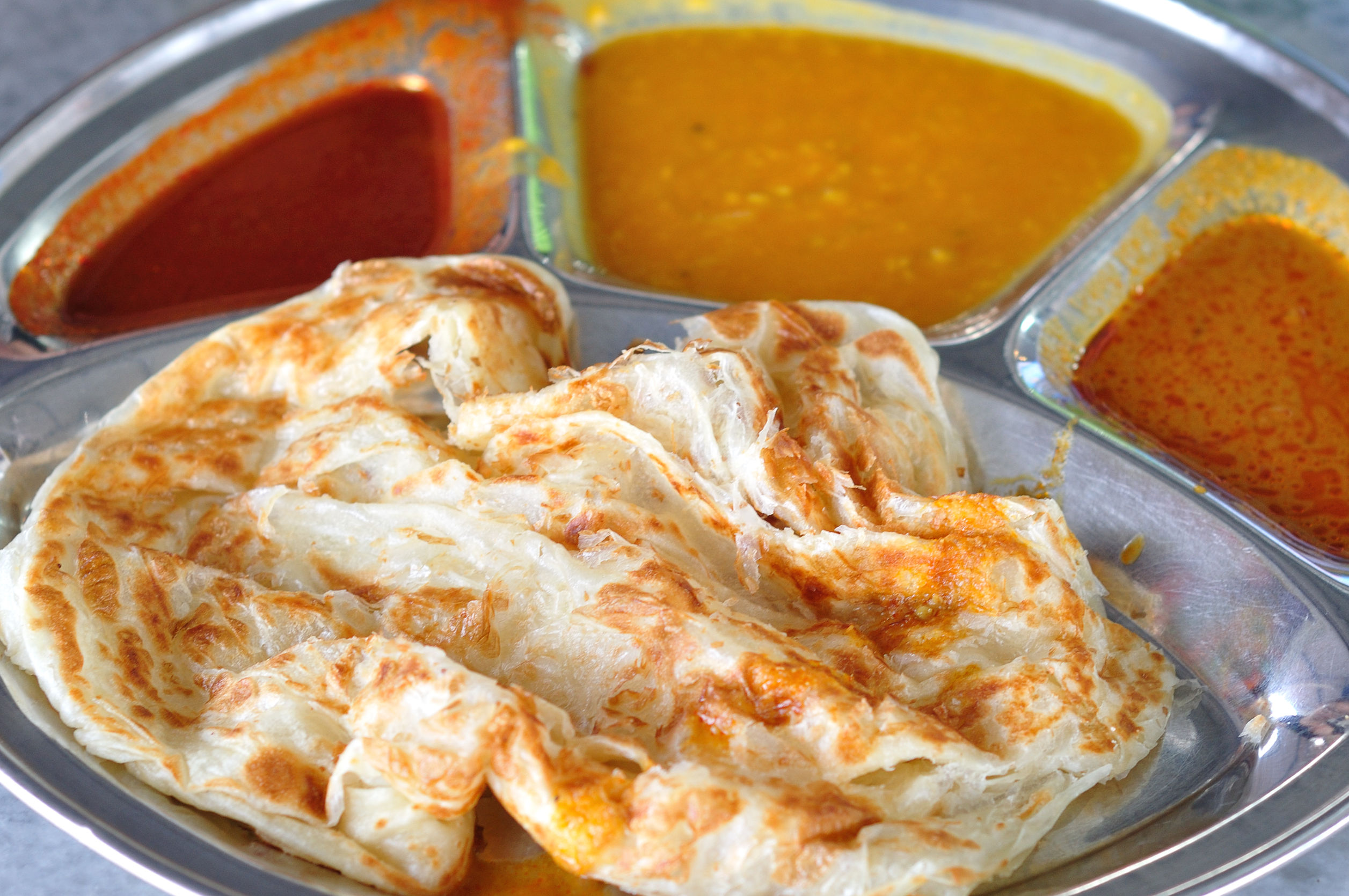A renowned Balinese restaurant illustrates how the spirit of innovation and respect for local ingredients is taking it places.
WHAT’S in a name? That which we call a rose by any other name would smell as sweet,” says Juliet in the famous Shakespeare tragedy Romeo And Juliet. The line suggests that names are arbitrary.
But are things really ever that straightforward? Let’s talk about a restaurant named Mozaic.
As we know, mosaic (with an “s” instead of “z”) is the use of tiny pieces of coloured glass, tiles or stones to create art or an image. Other definitions say it is also a thing made of diverse elements.
It evokes a sense of tradition as mosaic is a very old art form. Then, there’s the “z” twist, which lends an air of modernity.
All things in place, it could be said that Mozaic founder Chef Chris Salans couldn’t have hit the nail squarer on the head.
A contemporary restaurant set in the beautiful and culturally rich town of Ubud in Bali, Indonesia, Mozaic is a place of culinary discovery that has been welcoming guests the world over since it opened its doors in 2001.
Of French and American heritage, Salans is known for using local ingredients in combination with imported ingredients (Wagyu beef, for example) to create culinary inventions.
James Ephraim, Mozaic’s British sous chef, was in Kuala Lumpur recently to oversee a catering stint for the exclusive Lotus Arts de Vivre exhibition. He says that it is quite common for them to lock themselves in their workshop and experiment with new ingredients or combinations.
“It is where we play with the senses to find the right balance for our dishes,” he says.
Being such avid experimenters, have there been any disastrous, do-not-try-at-home combinations that he has come across?
Ephraim laughs: “It’s only disastrous if it ends up on our customer’s plate!” If it was only the team, he says, it is not an issue because they could always tweak it or discard it.
Still, there was one combination which he says people either hated or loved. “It is chocolate fondant – you know, the dessert with a melted filling.” Nothing out of the ordinary about that, right?
 Lush and lovely: Mozaic has attained international recognition for its innovative dishes, among them the Sumatran spiced beef rendang tartar with pinenuts and Parmesan (below), which sous chef James Ephraim made when he was in KL recently.
Lush and lovely: Mozaic has attained international recognition for its innovative dishes, among them the Sumatran spiced beef rendang tartar with pinenuts and Parmesan (below), which sous chef James Ephraim made when he was in KL recently.“Except, we paired it with rosemary, strawberries and Gorgonzola ice cream – cheese lovers will enjoy it but it’s not for everyone,” he says.
Personally, he enjoys the combination of vanilla, sesame and apple.
The chefs are also always on the lookout for new ingredients. An interesting one that Ephraim came across recently is the kluwak nut, which he says resembles walnuts. “It is black in colour and has a pasty core that tastes like a cross between mushroom and olives.”
“This is why we never stop looking – there are just so many things to discover. All it takes is a stroll in the market!” he exclaims.
And it isn’t only ingredients that Ephraim toys around with. Having a kitchen kitted out with state-of-the-art Miele equipment doesn’t stop him from inventing his own.
He beams: “One of the things that I came up with was a cold smoker. It has three chambers – one, where the smoke is created by burning rice husks or coconut shells.
“The second component is where the smoke is channelled through ice to cool it. The third chamber is where we place the ingredient that we want to smoke.” According to him, it only takes three to six minutes to achieve an intensity that is no less than if an ingredient was smoked traditionally.
Ephraim explains why cold smoking is better: “If we smoke something in the afternoon, before guests arrive, it would be cooked. Cold smoking, however, allows it to retain its freshness, juices and flavours.”
All this innovation is taking the restaurant places.
Accolades that Mozaic has earned include recognition by the European Association Tradition et Qualité as a member of Les Grandes Tables Du Monde (The Great Tables of the World), which places it among the ranks of restaurants such as Guy Savoy in Paris, France, and The French Laundry in California, US.
Mozaic is only the second restaurant in South-East Asia to receive this recognition.
It was also ranked fifth in Miele Guide’s Asia’s Finest Restaurants category and received a (maximum) three-star rating from Frommer’s.
Mozaic has been invitedon many occasions to cater outside of Bali, but, as Ephraim says, “Our No.1 focus is still the restaurant, which is why only one of us (Salans or he) will travel at any given time.”
Sri von Bueren, who co-runs Lotus Arts de Vivre – a Thailand-based brand offering handcrafted high-end jewellery, accessories and interior decoration pieces – enjoys working with Mozaic very much.
“We can always trust them to provide the ‘wow’ factor,” he says.
A six-course tasting menu at Mozaic starts from US$70 (RM212) to US$130 (RM394). Patrons can choose from five tasting menus, which are changed quarterly. This means that the kitchen – with a staff of 85 – will be preparing 30 dishes on any given night.
Von Bueren continues: “We trust them completely – and that’s important. They have a very experienced team and they will do their homework before going to a particular destination.”
Ephraim explains why this is necessary: “A lot of work goes into making an event successful. Special ingredients are chilled and sent over on an earlier flight to guarantee a consistent Mozaic taste.
“It takes very careful planning to ensure everything goes smoothly, but if it were easy, it wouldn’t be fun!”
Mozaic is located at Jalan Raya Sanggingan, Ubud, Bali, Indonesia. For details and reservations (recommended), visit its website at www.mozaic-bali.com.







